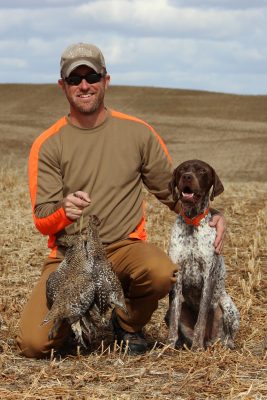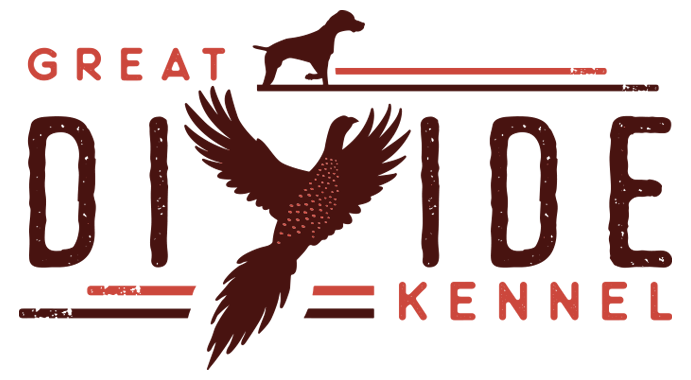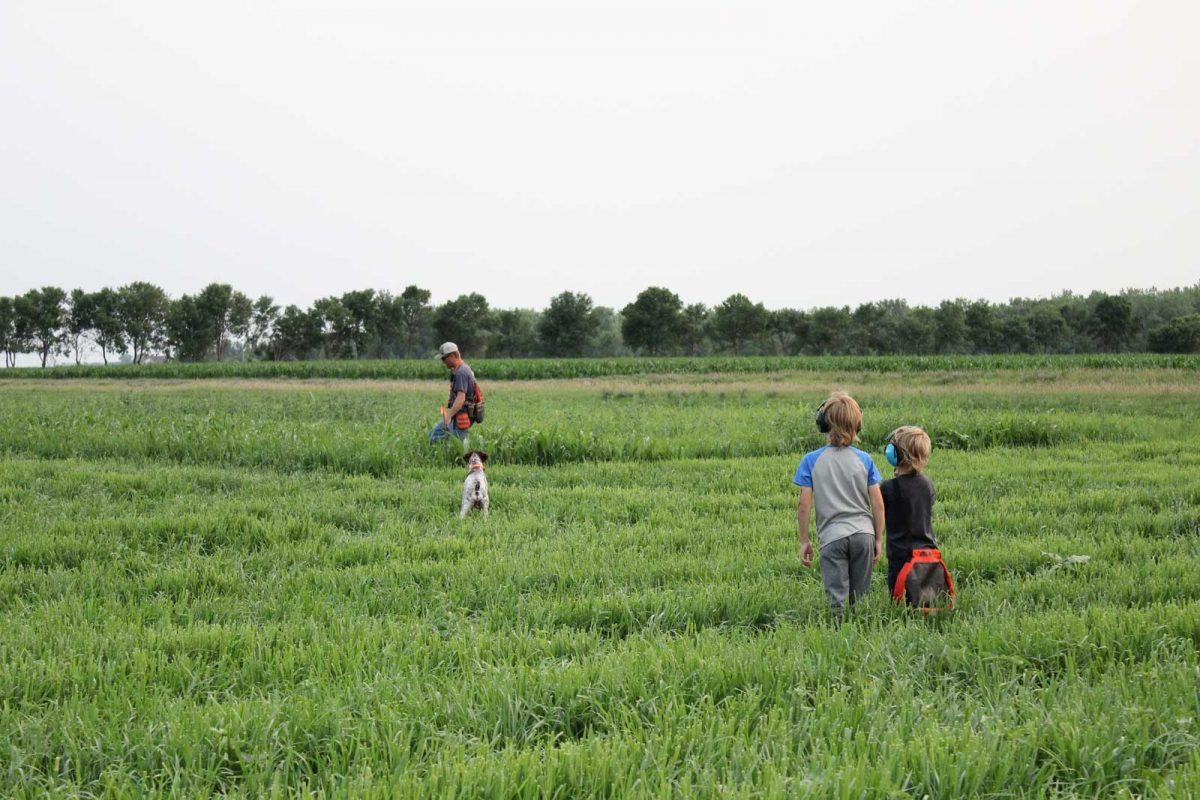Training Programs

In life, you get where you are because of people and experiences that help direct your course. I didn’t dream of being a dog trainer and breeder as a child. But a seed was planted when I first saw my cousins bird dog point. This led me to get my own dog, which I had to train myself. I had no idea what I was doing, and I happened to get one of the most Alpha dogs I’ve ever had the pleasure to encounter. He was challenging to say the least. But I loved it. I loved the challenge, I loved the relationship I built with him because of that challenge, and I loved the reward. To see that dog succeed in the field and the comradery I felt with him because of it…really, there’s nothing better. This planted the seed, but that seed sat dormant for some time.
It wasn’t until that dog’s career was coming to an end that I even considered getting another dog – he was one of a kind and I couldn’t imagine having another. But knowing that I wanted to share my passion for upland hunting, and the relationships and experiences that went with it, with my young boys, I knew we’d need another dog to carry that on. So another dog we got. And the seed grew.
It didn’t grow on its own. I did my research and fell in love with the Braque Francais breed. I got a great dog from a great breeder. But a good bloodline isn’t everything. You’ve got to train. And thanks to the support of my local NAVHDA chapter and my good friend and mentor, my passion for training grew and was solidified. I was able to train this amazing dog and prove his talent. Kep is the highest prized Braque Francais dog in the United States, and we are not done yet.
The seed that was planted years ago has now sown roots. I am solid in my confidence and passion for this breed. I want to see the Braque Francais breed succeed. I want everyone to experience the peace of the hunt and the pride of watching their dog work. I am determined to breed and train the best dogs, not just by bloodline, but by proven talent.
I am a dog trainer. I am a Braque Francais breeder. And I am an upland hunter.
And I won’t settle for anything less than the best.
-Travis Moszer
Starting your puppy right is key to their long term success. We will introduce them to many different types of hunting types of cover, building their confidence as we introduce both birds and gunfire. Each puppy will have multiple one on one training sessions each day and will be exposed to several species of birds from pigeons to chukar and quail. Bird contacts should always be exciting as a puppy and that is exactly what this program will be for them. It is recommended for puppies to be at least 4 months old and the course will take them about 2 weeks to complete.
We believe that there are 3 things all pointing dogs must do in order to be successful. They must go with you, come to you and stand still. In other words they need to hunt with and for us, working as a team in the field. Second they need to come to us when called, no matter what the situation. Thirdly they need to wait for us, establish point and not just flush birds.
We are deeply rooted in the NAVHDA system and this program gets them ready for their Natural Ability Test. God gave them the genetics we help unlock them and give them the tools to be successful. We do that by
-
- Building and shaping natural instincts, setting them up for success and allowing them to make mistakes
- Start basic obedience training (recall, sit, stay, heel)
- Handling in the field (recall, seeking out of objects/birdy covers, change of direction and overall cooperation)
- Work birds in the field to establish solid pointing skills. Teaching them how to use their nose to not only locate but also track downed birds.
- Get them swimming and if possible retrieving from water
- Experience on multiple species of birds (pigeons, pheasants, chukar and quail)
- Prerequisite – they must have completed our Foundation Program or have been properly introduced to both birds and gunfire
Pointing birds is only half of the job, after the shot we need to make sure that the bird ends up being recovered. This program is not only about building reliability into your dogs retrieve but it is also about building a more confident and mentally stable dog which will have a positive impact on all their future training.
Want to do this training yourself? Ask us about following along step by step as we complete the training from start to finish. Celebrate our successes and share our frustrations as we work through the process.
Again, because of our belief in the NAVHDA system we are training to their standard. We believe that a passed Utility Level dog is not only a joy to hunt behind but will be the envy of all of your hunting buddies.
Most bird dogs never achieve half of the training or skills that these dogs will possess. They are the ultimate hunting companion in ensuring opportunities on pointed birds and recovery of them after the shot whether on land or water. So whether or not you plan to run in a Utility test your dog will have all of the following skills upon completion of this program.
-
- In the field they will establish point and be steady all the way through release, upon release retrieve downed bird to hand
- Learn to search for downed game until called back by the handler. NAVHDA requires a duck search for at least 10 minutes
- Track a downed bird for minimum of 100 yards and retrieve to hand
- Be able to made sit and stay at a single location while multiple shots are fired and duck is launched into the water to be retrieved. Then must retrieve the duck to hand
Looking to add a hunting partner to your family but don’t have the time, resources or knowledge to start them right? We can help! Bring your puppy to us, or choose one from an upcoming litter of ours, and we will make sure they get started on the right foot. We will put them through our Foundation and Natural Ability programs, getting a solid start on their obedience training as well as preparing them for a successful first hunting season.

